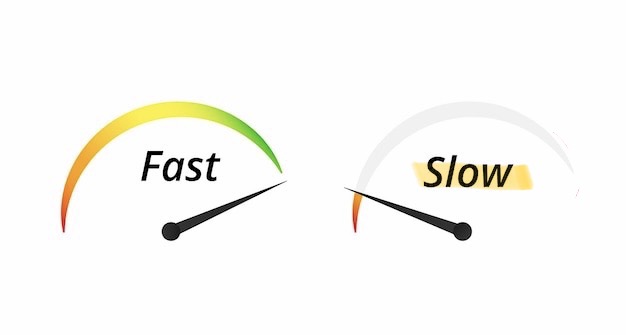Decision-Making: Too Slow

Are you someone who tends to agonise about making decisions, who procrastinates, fearful of making the wrong choice? Or someone with a habit of taking them too hastily, just to get any indecisiveness out of the way? Whether too slow or too fast, neither is ideal. David Presswell has thoughts on both.
In one organisation for which I worked, there was a key decision-maker known by many of us as ‘Forever Amber’ for their reluctance to decide. Every decision was left open until eventually, and seemingly inevitably, it became apparent it was a ‘slow no’.
But many of us have some of that quality within ourselves: a fear of making the ‘wrong decision’ and of being left with a sense of regret so paralyses us that we can agonise over everything from a career move, to a key purchase, to the choice of what to order on a menu. ‘What’, we ask ourselves, ‘if one of the alternatives were to prove more satisfying? Better.’ These thoughts can become so pervasive they undermine our confidence and enjoyment in the choices we do make, we are too taken up by ‘what if?’.
But what if there were no such thing as the right choice? I mean, literally, no such thing?
There is a well-known story I heard many years ago which still stays with me as a corrective to the whole notion of ‘getting it right’. For those who don’t know it, it concerns a Chinese farmer who had a particularly fine crop one year. His neighbours told him how lucky he was. ‘Maybe’, he replied. The day before the harvest, it was overrun by a herd of wild horses. His neighbours told him how unlucky he was. ‘Maybe’, said the farmer. The farmer’s son took the opportunity to round up some of those horses. His neighbours told him how lucky he now was to be the proud owner of such fine animals. ‘Maybe’, he replied. When the farmer’s son broke his leg trying to tame them, his neighbours were quick to sympathise with the farmer’s misfortune. ‘Maybe’, the farmer said. And the next day, a number of the Emperor’s soldiers came to the village to press-gang able-bodied young men for the army. The farmer’s son was spared on account of his broken leg. The neighbours who had lost sons told him how fortunate he was.
The wisdom this farmer showed was in recognising that what may seem to be a bad outcome from one perspective – whether narrowed by scope or time – might prove to be a much better one from another. I’m sure I’m not alone in my life in recognising how often ‘bad’ events have had some of the most positive outcomes, whether in terms of experiences had, friendships made, or lessons learned. If we’re honest with ourselves, Life is just too unpredictable for any of us to know with certainty what the right decision was, even after the event, let alone before it.
But that’s not to say there aren’t some objectively better ways of making a decision than others.
One of the disadvantages in telling ourselves we must make the right decision or that too much rests upon it, is that we drive ourselves into a place of fear, and that is a terrible place from which to take any rational or balanced decision. Fear tends necessarily to narrow our perspective and to reduce our sense of options. We simply don’t see possibilities because we are so focused on what we are seeking to avoid. We stop trusting ourselves, and we grow overly dependent on the views of any and everyone else, particularly those with the loudest voice. And, even when we have made the decision, we doubt ourselves: did we make the right choice? If not, who is to blame? What is worse, we can become stubbornly attached even to a poor decision because we tell ourselves we now have too much to lose in reversing it.
In her famous book, Feel the Fear and Do It Anyway, Susan Jeffers describes this pattern as the ‘No Win Decision-Making Model’. In contrast, she offers an alternative that was a revelation for me at the time and has proved consistently helpful since. She terms this the ‘No-Lose Model’ as it dispenses with any fixed idea of a right or a wrong outcome, and it goes like this…
Before taking the decision:
- Do your research. Read around the area, seek alternative viewpoints, talk to those with relevant perspectives
- Establish your priorities. These may be logistical; they could also be in terms of your personal values
- Trust your impulses. Listen to your gut and
- Lighten up.
After taking the decision:
- Accept total responsibility. Own the choice you have made
- Stay open to adjustments. If, in the light of experience, a decision requires review or even reversal, don’t protect, correct
In this way, our decisions are held more lightly and, with that lightness, they become not just easier, but we become more effective in making them.
Next time, the tendency to take decisions too quickly…
- Coaching
- Consulting

